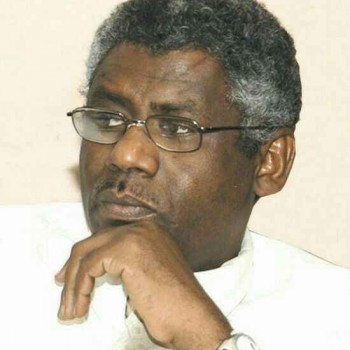The Position of Regional and International Organizations on the Sudan War (1-2)

As I See It
Adil Al-Baz
From the beginning, this war was called the “revealing war” because it exposed the positions of individuals, organizations, and regional and international institutions. A year and a half after it began, the field is completely uncovered—who is with the nation, and who is against it? Who are its friends, and who are its enemies? Who is neutral? All of this has become clear. The stance of international and regional institutions, which claimed to have been established to maintain global security and peace as well as the noble values enshrined in their charters, will be examined to see how consistent they are with the principles they claim to uphold. The Sudanese crisis has revealed, or rather confirmed, the discrepancy between the words, documents, and values of these organizations and the positions they have taken regarding the war in Sudan.
One of the undeniable truths that these organizations have ignored since the beginning of the war is that a rebellion was initiated by a unit belonging to the Sudanese army (the Rapid Support Forces) that waged war on the state of Sudan, thereby transforming into a militia outside the law and order of the state. However, as time went on, regional and international organizations began to use language that suggested they were attempting to avoid condemning the rebel forces. At times, they would talk about a war of generals and, at other times, equate the state and the rebel militia as “parties to the conflict” or “leaders of the conflict.” Instead of condemning the rebels against the state, these organizations tried to legitimize the rebellion and did not refer to the Rapid Support Forces militia as “rebels.” I once asked a participant in a program on Al-Araby TV what if, for example, the Fifth Division of the Egyptian army rebelled—would any Arab or African country recognize them and deal with them, let alone roll out the red carpet for the rebel leader and invite him to a regional conference that should only be attended by heads of state? He stammered and said nothing.
In light of these facts and the overall picture, let us examine the positions of regional and international organizations. Starting with the African Union: although Sudan’s membership in the Union is suspended, it hastened to intervene maliciously in the Sudanese war. On May 27, 2023, the Union quickly held its first session on what it called the conflict in Sudan without defining that conflict! It called for an immediate ceasefire and was about to make decisions regarding it, but Sudan’s threat that any decision made without consulting it would lead to Sudan’s complete withdrawal from the Union stopped the Union from issuing any decisions. It contented itself with calling for a ceasefire but continued to issue statements equating the Sudanese army with the rebel militia. Recently, it called on all parties involved in the Sudanese issue to enter into what became known as the “expanded mechanism” to stop the war, mentioning the importance of adopting a “step-by-step” approach to solve the problem in Sudan and emphasizing the great importance of a direct meeting between the “leaders of the conflict” (take note!). It also called on neighboring countries and some regional countries involved in the war (the UAE) to join the expanded mechanism, but that mechanism failed due to its initial bias and because Sudan rejected it.
As for the Arab League, it quickly issued a statement two days after the outbreak of the war on April 16, 2023, calling for a ceasefire over what it called an armed conflict! Just like that… an armed conflict with no identity… between whom and whom? Of course, it did not name the parties to the conflict or their identities because that would require it to take a stance against the rebels, so it hid behind the term “armed conflict”! Since the outbreak of the war, it has issued dozens of statements, all revolving around the same empty circle—sound and fury, signifying nothing, as expected!
As for IGAD, its position was clear and disgraceful in its bias from the first day of the rebellion. It hastened to hold a meeting on June 21, 2023, during which it announced the formation of a quadripartite mediation committee to deal with the Sudanese crisis, pointing to the great importance of a direct meeting between the “leaders of the conflict.” It also called for drawing up an “IGAD roadmap” to resolve the crisis in Sudan! Note the “leaders of the conflict” reference again—this conflict between whom and whom? They also deliberately refrained from calling it a rebellion because if they did, they would have to side with the state and its institutions against forces that had rebelled against them. However, because their agenda supports and is loyal to the rebellion, they engage in such deception by referring to the “leaders of the conflict.” To be continued.



